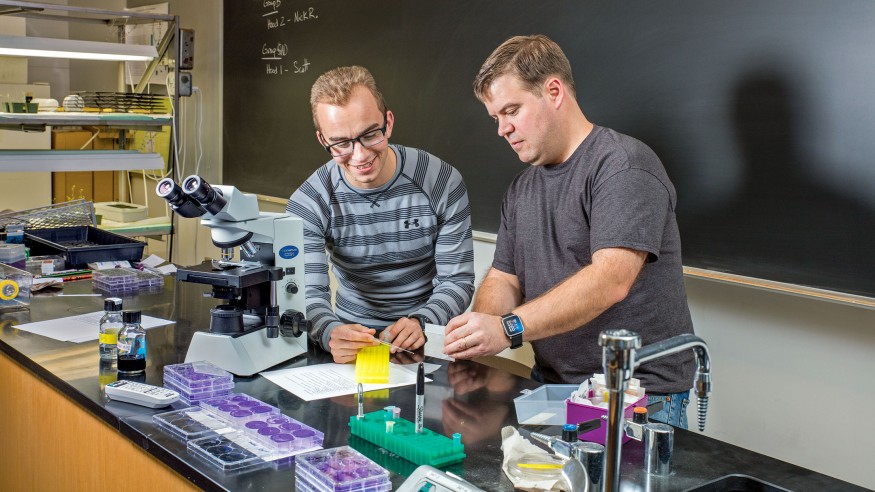
Spuds in Space?
Chris Wolverton Discusses NASA Program in The Christian Science Monitor
In a new Christian Science Monitor article, Ohio Wesleyan University botany-microbiology professor Chris Wolverton says NASA has some challenges to overcome as it works to grow vegetables in space.
“One of the major problems with growing plants in a microgravity environment relates to the distribution of water, which tends to form droplets rather than flowing through the growth substrate,” Wolverton, Ph.D., tells reporter Weston Williams. “These droplets can have the effect of local ‘flooding’ when they form around plant tissue, effectively suffocating the plant, which requires oxygen.”
Wolverton is one of the scientists helping the space agency to better understand and address issues related to gravity-challenged gardening.
He has been awarded a NASA grant to study plant gravity-sensing and response on the International Space Station and has served on many NASA grant panels over the last 10 years. Wolverton also is a member of the Board of Governors of the American Society for Gravitational and Space Research.
Read writer Williams’ complete Christian Science Monitor article, “Why NASA is expanding its ‘Veggie’ space program,” and learn more about Wolverton’s research in “OWU in Orbit,” published in the latest edition of the OWU Magazine.
